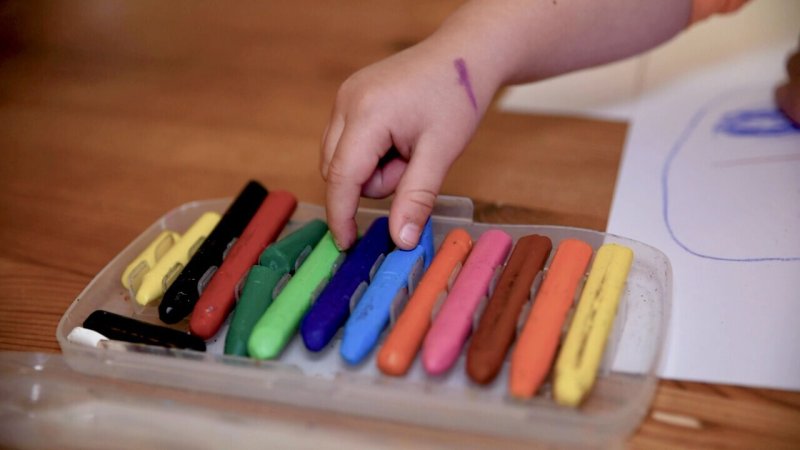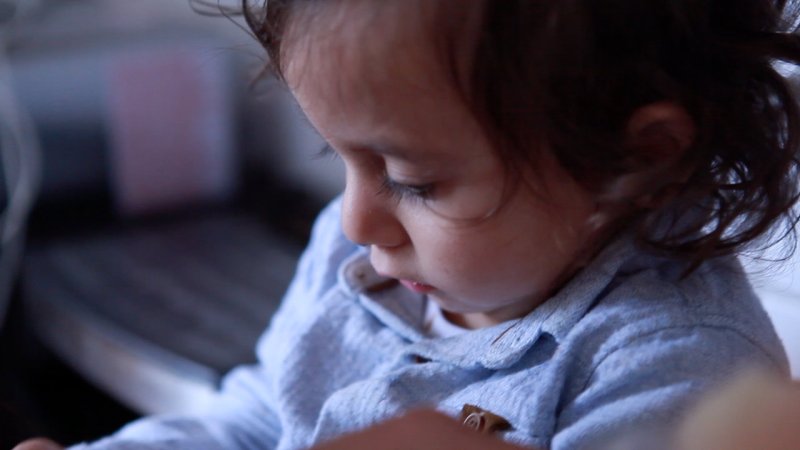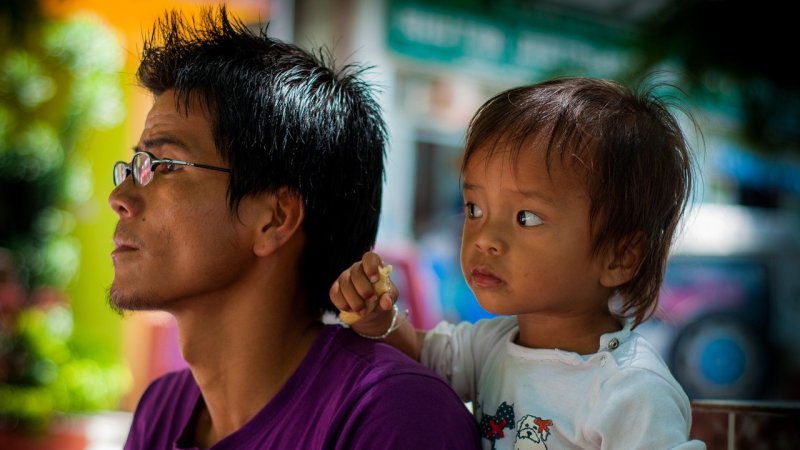
Parents are not only faced with the task of raising their children, but also nurturing them to become developed adults. Of course, the parenting style you choose is entirely up to you. In many families, arguments and problems are part of everyday life - not only with teenagers, but also with younger children. It is worth to mention that in their daily life, in daycare or school, a lot is demanded of children, and they too are often exposed to stress and pressure.
Does your baby cry all night? Does your child have problems finding friends? What if your teenager doesn't listen to you any more and, for instance, comes home way too late? Does your child often react aggressively or hide in their room? Does your child spend all his free time on the computer or mobile phone? Does your child have problems at school? Or with the police? Do not worry! You are not alone with your concerns and responsibilities. In Germany, there is a broad network of advice centres and organisations specifically tasked to support parents in bringing up your children.
Important: Children in Germany are entitled to a violence-free upbringing. As regulated in §1631 of the Civil Code, punishing or injuring children physically or mentally is forbidden - that includes, for instance, slapping, shoving, shaking, locking up, pulling the hair, blows, injuries to the skin, beatings, kicking as well as humiliation and intimidations and alike. If the Youth Welfare Office learns of a child abused in any way from a neighbour, Daycare Centre or school, they are legally bound to investigate the allegations. You can find out more about the responsibilities of the Youth Welfare Office in our chapter "Youth welfare office".
You can benefit from anonymous and cost-free advice from the Parents' Hotline. The staff will listen to your concerns and difficulties and will try to help you work out a solution. You can reach the Parents' Hotline daily between 9 a.m. and 5 p.m. at 0800 777 18 77 in German and English (free of charge). Or you can write a message to fraguns@elternhotline.de in German, English, Arabic, Farsi, French, Turkish, Kurdish, Bulgarian, Romanian, Russian, Serbian, Spanish, Polish or Croatian. The staff will answer you within 24 hours.
With the so-called "Early Help", young parents can benefit from advice and support free of charge. The "early help" is available for parents or single parents from pregnancy until the child is three years old. If you feel overwhelmed in everyday life or would like tips on raising children, you can contact an "early help" Advice Centre nearby. They provide different types of support: A family midwife or family carer can advise you on the spot, i.e. at your home, or you can visit a family counselling service or a parents' meeting with other parents. All these services are free.
You can learn more about available support options at an Advice Centre nearby. At elternsein.info, you can search for a specialised "Early Help" advice Centre nearby.
Important: some babies cry a lot. Often parents of so-called "crying babies" are at a loss and quite concerned why their babies will not stop crying. If you are one of these parents, contact a so-called "Crying Ambulance" or "Schreiambulanz" which provide you aid with the non-stop crying. On the website of the National Center for Early Aid, you can search for a "Crying Ambulance" nearby.
The Family and Parenting Advice Centres support parents of children of all ages. If you are overwhelmed with parenting or need help in raising your child, you can always contact their staff. They listen to your worries and problems and try to help you work out a solution. At bke.de, you can search for a Family and Parenting Advice Centres which provides support in your language nearby. Their service is free of charge.
Special "Parents’ meet-ups" ("Elterntreffen”) are available for refugee parents with children aged five or younger. There you will learn how to deal with stress and acquire advice on how to raise and nurture children. You can also exchange ideas with other parents. The courses are offered in Arabic, Farsi, Kurdish (Kurmanji), Russian and English. They take place in Berlin, Bonn, Cottbus, Fürstenwalde, Erfurt, Leipzig, Mannheim, Peine and Potsdam. The courses are free of charge- and your child will be looked after by the staff as you attend the course. You can find out more about these courses at rescue.org.
In almost all larger communities, there are so-called "Parents Meetings" or "Mother/Father-Child Groups". There you can meet with other parents and talk to them about your concerns and hear about their experience. Plus, children can play together and make friends. To find a "Parents Meetings" in your area, you can ask your local community/cultural centre or a Family and Parenting Advice Centre nearby. At bke.de, you can search for Family and Parenting Advice Centre which provide support in your language nearby. You can also ask the Parents' Hotline.
The Child and Youth Welfare Service is in charge of enabling parents to resolve conflicts within the family without violence. There are different types of relief, depending on the type and severity of the issue in hand. You can, for instance, take a parenting course or get help from a counsellor specialised in child care. Another option may be to have a family helper come straight to your home and help you with some tasks. Various organisations offer child and youth welfare services - to benefit for these services, you can contact the Youth Welfare Office responsible for you. On the website of familienportal.de, you can search for the proper Youth Welfare Office. Their service is free of charge - The main objective behind the Child and Youth Welfare Service is to solve conflicts and problems within the family so that they can live together free of tensions and violence.
The socio-pedagogical family support is a free offer from the Youth Welfare Office for parents and their underage children. The offer is intended to help you solve issues occurring within the family or in dealing with the authorities with the help of family support workers (so-called “Familienhelfer*innen“). Family support workers are specialists trained to provide help in difficult life situations. Together with you and your family, they make a plan on how to solve the problem and support you in implementing the plan. To get the support you need, you and your family support worker meet regularly – they discuss with you and your family how everyone is doing and where you continue to have issues. If there are problems that family support workers cannot solve, they try to find you places where you can get help, for example, in psychotherapy or a counselling centre. Most family support workers speak German and maybe some English. If you don’t speak German well enough yet, you can use the help of an interpreter. Ask your Youth Welfare Office whether they will cover the costs. If you do not get along well with your family support worker, you can ask for another one. To do so, contact your Youth Welfare Office. Please note: Family support workers are not household help. However, they can advise you, for instance, on how you can manage your household and your job at the same time.
You can apply for socio-pedagogical family support at your Youth Welfare Office. You can find the office responsible for you at unterstuetzung-die-ankommt.de. Before filling out an application, have a consultation with the Youth Welfare Office to find out whether socio-pedagogical family support is the right solution for you and your family. Afterwards, the staff will help you to apply for it. In some cases, the Youth Welfare Office can assign you a family support worker (without you asking for it). This can happen when a court or the Youth Welfare Office is concerned that the child is not doing well in the family or that a family is dealing with several problems at the same time. Please note: Family support is not intended as a punishment. Its objective is to help you and your family solve your problems and do better. If you are assigned a family support worker, try to cooperate. This shows that you want to work to make things better for your child and your family. You can find out more about the tasks of the Youth Welfare Office in our chapter “Youth Welfare Office”.
If you have anxieties and difficulties concerning your child or feel overwhelmed, you can also ask your child's Daycare Centre or school for help. Staff of childcare facilities and teachers can refer you to social workers or counselling centres specialised in child care.
Elternhotline provides cost-free anonymous counselling for parents in Germany in various languages.
In this illustrated children's book (in English), you and your child can learn about the German Child and Youth Welfare Services and how you can benefit from them.
On the bke website, you can search for a counseling centre in your area and your language.
The counselling centres of the Youth Migration Service (JMD) offer support and advice to refugees and migrants under the age of 27 on various topics in many different languages.




